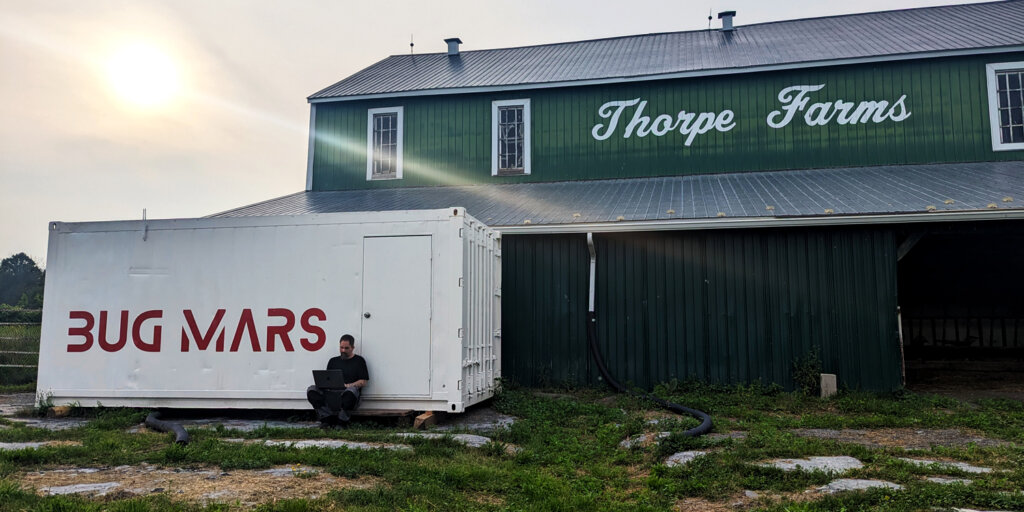Home » Data Explosion: How Two Smart Device Companies Perfected Their Solutions
Data Explosion: How Two Smart Device Companies Perfected Their Solutions

Bug Mars and Neuraura are advancing toward commercialization by leveraging high-compute power and low-latency networks. While achieving successful lab testing for new tech innovations marks a significant milestone, deploying these innovations in unpredictable real-world contexts poses greater challenges, especially for smart digital products.
Seth Hardy, co-founder and CTO of Bug Mars, developed an AI-driven digital platform using computer vision and sensors for real-time monitoring in insect farms. Initial testing was fraught with obstacles due to poor Wi-Fi connectivity at a farm in Kingston, Ontario, which forced Hardy to spend long hours scrambling to secure a reliable connection. This unreliable network risked the health of the insects being monitored; disease could devastate an entire colony within a day if connectivity issues existed. To avoid these pitfalls, Bug Mars required quick data streaming with minimal latency.
Similarly, Neuraura, a neurotechnology company based in Calgary, needs reliable access to high compute power and low latency to address users' health needs effectively. Their device, aimed at managing symptoms associated with polycystic ovary syndrome, will integrate data processing to improve efficiency in real-time health monitoring. Delays in data processing could have negative consequences, underscoring the necessity of high-speed connections, which are not guaranteed with conventional data services.
Ian McCarter, director of corporate innovation at MaRS, emphasizes the difficulties faced by startups in accessing the necessary tech for effective testing. The financial burden associated with obtaining cutting-edge technology can stifle innovation and limit commercialization opportunities. To address these challenges, MaRS partnered with Bell and Amazon Web Services (AWS), providing startups like Bug Mars and Neuraura access to AWS's Wavelength multi-access edge computing solution operating on Bell's 5G network. This collaboration supports entrepreneurs in refining their products through advanced testing without incurring substantial costs.
The partnership enabled Bug Mars to use a robust network for testing its platform efficiently. Mishaps like Hardy's initial struggles to reroute cables became less burdensome with 5G connectivity allowing for quick analysis from the edge of the network without relying heavily on local hardware. This method alleviates data processing costs while improving speed, vital in agriculture with slim profit margins.
Security is paramount for Neuraura, as they develop their health-tech device aimed at providing localized electrical stimulation. To ensure user data remains secure, AWS processes data without using the public internet. Neuraura's team, including data science specialist Dharmang Desai, is focused on securing FDA clearance and preparing for clinical trials, ensuring robust data protection measures are in place.
The initiative significantly positions both Bug Mars and Neuraura closer to commercialization, equipping them with the technology and support required for future growth. Hardy observes promising results from preliminary testing of advanced disease detection through real-time video analysis. Meanwhile, Neuraura's team is adapting to emerging innovations for their health solutions, guided by this critical partnership, ensuring they remain competitive in a fast-evolving landscape. Both companies are well on their way toward transforming their respective industries with breakthrough technologies aimed at enhancing food production and healthcare.
MaRS Discovery District
https://www.marsdd.com/
MaRS is the world's largest urban innovation hub in Toronto that supports startups in the health, cleantech, fintech, and enterprise sectors. When MaRS opened in 2005 this concept of urban innovation was an untested theory. Today, it’s reshaping cities around the world. MaRS has been at the forefront of a wave of change that extends from Melbourne to Amsterdam and runs through San Francisco, London, Medellín, Los Angeles, Paris and New York. These global cities are now striving to create what we have in Toronto: a dense innovation district that co-locates universities, startups, corporates and investors. In this increasingly competitive landscape, scale matters more than ever – the best talent is attracted to the brightest innovation hotspots.


